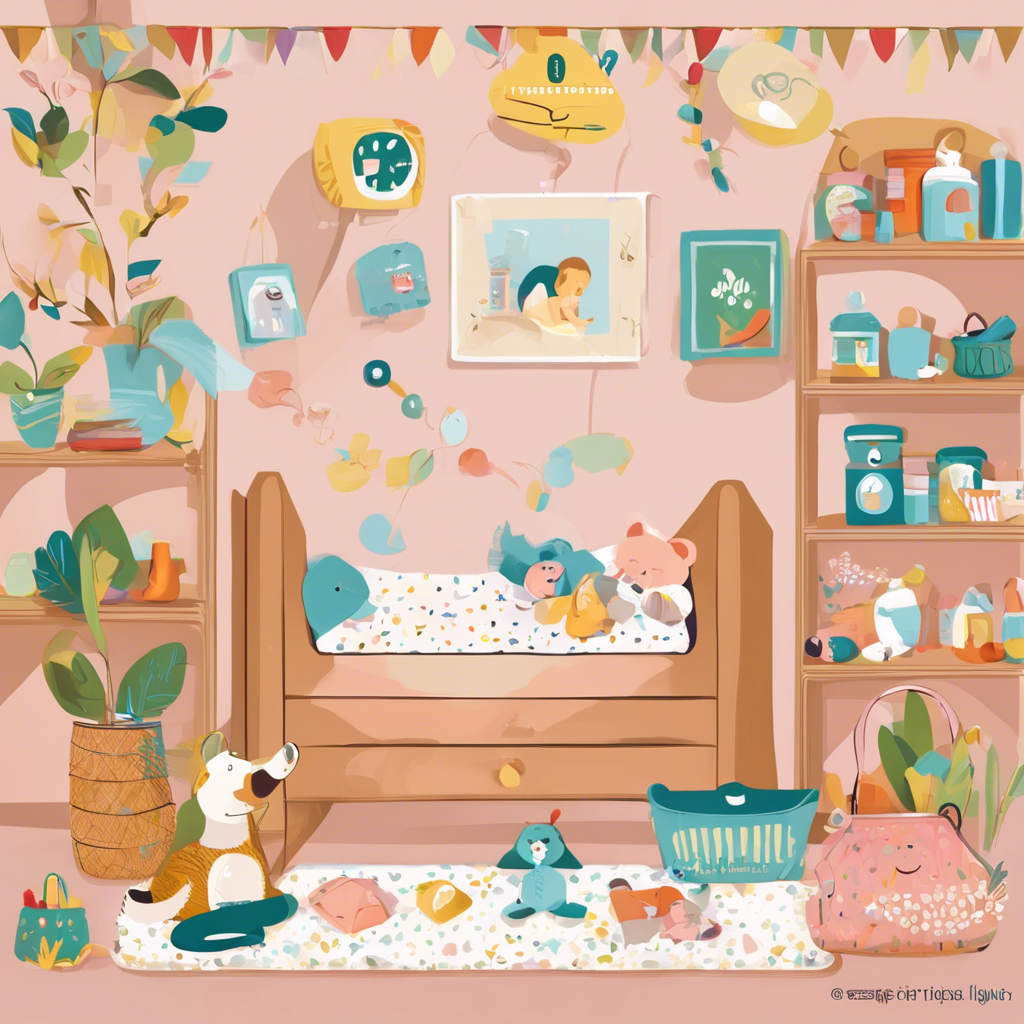Many well-meaning parenting tips have been passed down through generations, but not all of them hold up under modern medical scrutiny. In the digital age, misinformation spreads quickly, making it crucial for parents to separate fact from fiction when caring for their little ones. Some baby care myths sound logical but can be harmful, while others simply cause unnecessary stress. Understanding the truth behind these myths allows parents to make informed decisions and provide the best care for their babies.
One of the most common misconceptions is that newborns need to be bathed every day. While cleanliness is important, daily baths can actually dry out a baby’s delicate skin, leading to irritation and discomfort. According to pediatricians, newborns only need to be bathed two to three times a week, as long as their diaper area is cleaned regularly, and their hands and face are wiped after feedings. Over-washing can strip the skin of natural oils, making it more prone to dryness and rashes. Instead of frequent baths, parents should focus on gentle skincare and moisturizing to keep their baby’s skin healthy.
Another widespread myth is that babies must be wrapped tightly in blankets at all times to stay warm. While swaddling can help soothe newborns by mimicking the womb’s environment, improper or excessive swaddling can increase the risk of overheating and even hip dysplasia. Babies regulate their body temperature differently than adults, and overheating is a known risk factor for sudden infant death syndrome (SIDS). Instead of bundling up a baby too tightly, parents should dress them in lightweight layers and use breathable swaddles that allow for natural movement of the legs and hips.
Many parents have been told that picking up a crying baby too often will spoil them. This belief stems from outdated ideas about independence and discipline. However, research in child development shows that responding to a baby’s cries with comfort and care helps them develop a secure attachment to their caregivers. Babies cry because they have unmet needs, whether it’s hunger, discomfort, or the need for reassurance. Ignoring their cries does not teach them independence; rather, it can increase stress and anxiety. Responsive parenting builds trust and fosters emotional well-being, making babies feel safe and secure in their environment.
The idea that teething causes high fever is another myth that has caused concern for many parents. While teething can make babies fussy and irritable, it does not directly cause high fever, diarrhea, or severe illness. A mild increase in temperature can occur due to gum inflammation, but if a baby has a fever above 100.4°F (38°C), parents should look for other potential causes such as infections. Assuming that a high fever is just teething-related can delay necessary medical attention. Instead of relying on teething gels or amber necklaces, which have no scientific backing, parents should provide safe teething remedies such as chilled teething rings or a clean, cold washcloth for babies to chew on.
Another persistent myth is that formula-fed babies are less healthy than breastfed babies. While breast milk has many benefits, including immune-boosting properties and easy digestibility, infant formula is a perfectly safe and nutritious alternative for those who cannot or choose not to breastfeed. Modern formulas are designed to closely mimic breast milk and provide all the essential nutrients a baby needs to grow. What matters most is that a baby is well-fed and thriving, regardless of whether they receive breast milk or formula. Shaming parents for their feeding choices only adds unnecessary stress and guilt, rather than supporting them in making the best decision for their family.
One of the most dangerous myths is that newborns should sleep on their stomachs to avoid choking. This belief has been debunked by medical experts, and placing a baby on their stomach significantly increases the risk of SIDS. The safest sleep position for a baby is on their back, on a firm mattress, with no pillows, blankets, or stuffed animals in the crib. The “Back to Sleep” campaign, launched in the 1990s, has greatly reduced SIDS rates by educating parents on safe sleep practices. Any concerns about a baby spitting up while on their back can be addressed by ensuring they sleep on a slight incline or turning their head to the side.
Some parents believe that introducing solid foods earlier than recommended will help their baby sleep through the night. However, feeding solids before a baby is developmentally ready—typically around six months—can increase the risk of choking, digestive issues, and food allergies. The digestive system of a baby needs time to mature before handling solids, and early introduction does not necessarily improve sleep. Instead, establishing a consistent bedtime routine and ensuring a baby is well-fed with breast milk or formula before bed can be more effective in promoting longer sleep stretches.
A long-standing myth suggests that babies must wear shoes to help them learn to walk properly. In reality, babies develop balance, coordination, and foot strength best when they are barefoot or in soft, flexible shoes that allow natural movement. Hard-soled shoes can actually hinder proper foot development by restricting movement and preventing sensory feedback from the ground. While shoes are necessary for protection outdoors, they are not required for learning to walk. Parents should focus on providing a safe environment with stable surfaces where their baby can practice standing and taking steps barefoot.
There is also a widespread belief that babies need complete silence to sleep well. While it is true that some babies are sensitive to noise, many actually sleep better with background sounds. In the womb, babies are constantly exposed to noise from their mother’s heartbeat, digestion, and external sounds. White noise machines, soft lullabies, or the hum of a fan can create a comforting environment that helps babies settle into sleep. Rather than tiptoeing around the house, parents can help their babies become accustomed to everyday household sounds, making it easier for them to sleep through normal noise levels.
Another myth that often pressures new parents is the idea that all babies develop at the same rate. Comparisons between babies can lead to unnecessary worry, especially when it comes to milestones such as crawling, walking, or talking. While developmental charts provide general guidelines, every baby is unique and progresses at their own pace. Some may walk early, while others take their time. Instead of focusing on comparisons, parents should monitor their baby’s progress and consult their pediatrician if they have concerns about significant delays. Providing a supportive and encouraging environment is more beneficial than stressing over arbitrary timelines.
Misinformation about baby care can make parenting even more overwhelming than it already is. By debunking these common myths, parents can make more informed choices and feel confident in their ability to care for their little ones. Science and expert recommendations continue to evolve, so staying updated with credible sources and consulting healthcare professionals can help parents navigate the challenges of raising a healthy, happy baby.

